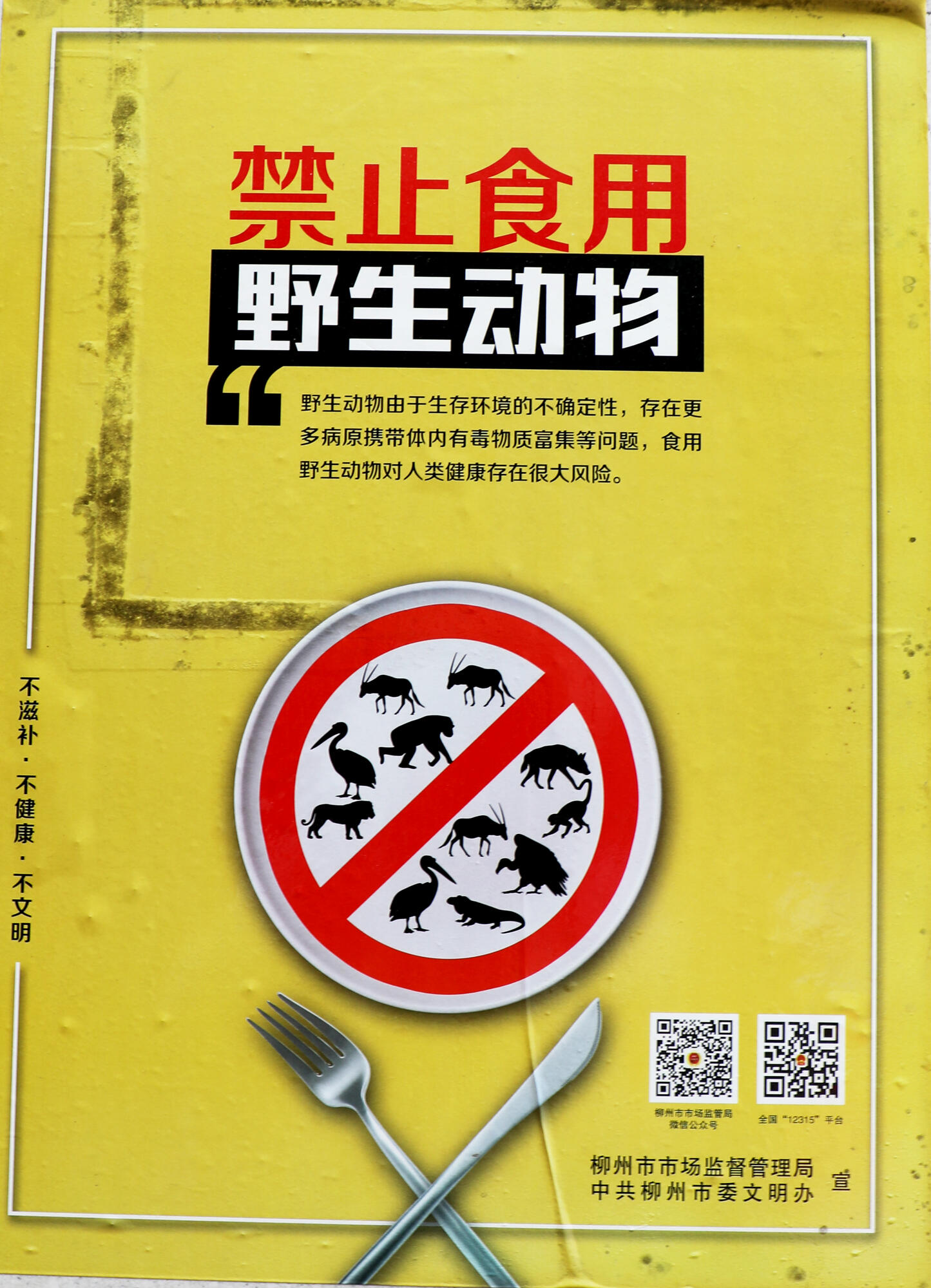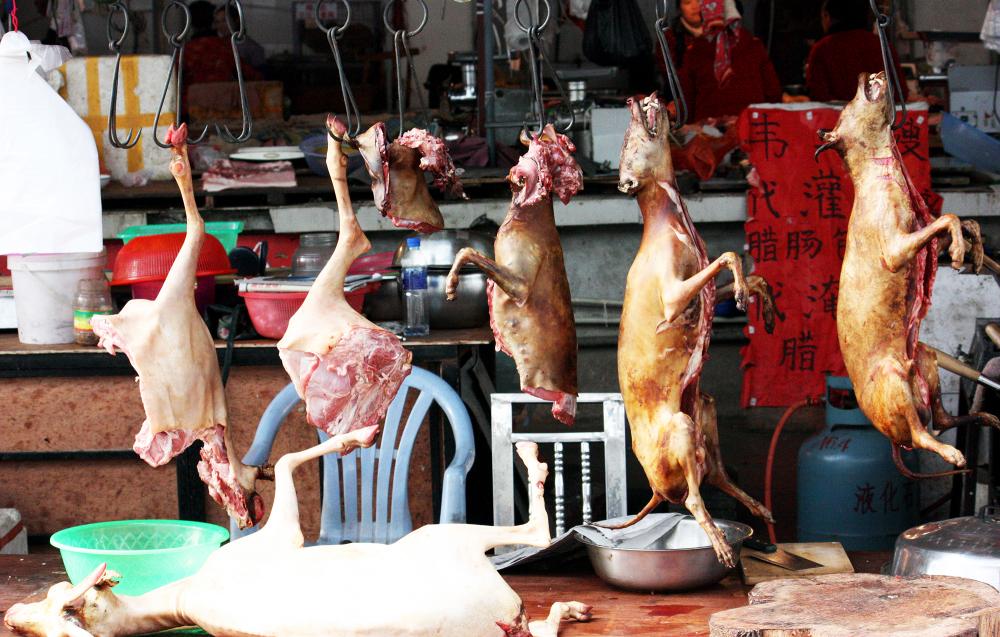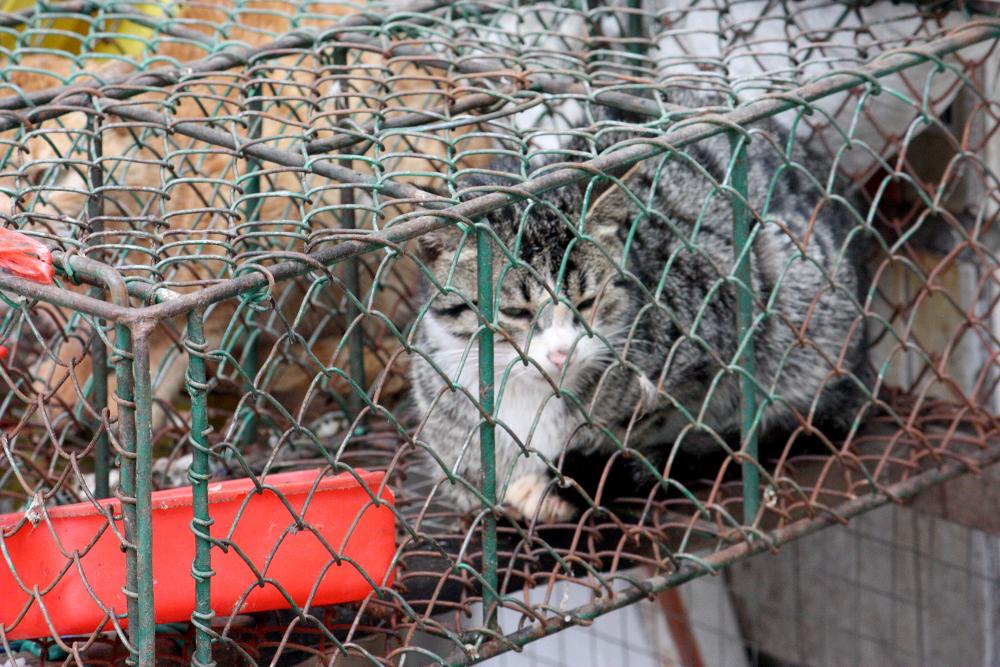8. The Chinese eat wild animals and other strange things.
Let me separate the two. First, wild animals. Yes some Chinese people eat wild animals, but very, very few people do so. No more than other countries and in some instances a lot less. Once upon a time, everyone ate wild animals until they hit on domestication! Today, wild animals are eaten in almost every country. Hunting is a favourite sport among many people and members here regularly eat and hunt wild animals. I eat wild fish and seafood. The only wild meat I've seen in supermarkets has been rabbit. Not so strange.
When people complain about China in this way, they probably mean "exotic" wild animals. That is rather meaningless. Exotic just means different, foreign. Chinese people think we eat exotic food!
Most of the people who do eat these meats are elderly folk who remember Mao's Great Famine in which between 18 and 45 million died (estimates vary) in the late 50s/early 60s. To survive they had to eat anything they could find or catch.
Also, Chinese Traditional Medicine (TCM) considers many animals to have medical benefits. Most of these are nonsensical, but the elderly and uneducated often believe them.
Following the SARS pandemic in 2003, a long list of animals was compiled and they were made illegal to eat. Qingping market (青平市场 - qīng píng shì cháng) in Guangzhou (Canton) was notorious for the number of "exotic" animals it sold. Now it doesn't, depending on what you consider to be "exotic". Similarly, in light of Covid, this year a further list was issued, admittedly too late.

Then I must come to dog meat (狗肉 - gǒu ròu). One thing to be said is that, despite popular myth, the dogs sold are not stolen pets - the vast majority are farmed specifically for food. The annual dog meat festival in Yulin (near here) was originally just a lychee festival, the area being famous for that fruit. Some dog farmers and restaurants decided to attach themselves to the event and thanks to PETA, the extremist animal rights group, which gave them worldwide free publicity with their usually fake propaganda, it became more popular! Still. PETA kills more dogs a year than Yulin does. Today, the dog side of the event is no longer so popular. I have several friends from Yulin - none of them eat dog.
There are a few dog restaurants here in town. I pass this one almost every day.

Its clientele seems to be mostly middle aged men in large groups getting drunk. In the morning, the car park, which I walk through as a shortcut to the market, is littered with tart cards, suggesting that it's all rather seedy. I've never been inside the place!

The market I'm going to doesn't have dog meat or anything out of the ordinary. Others do. I've never encountered the meat in any supermarket.
Today, there is a huge, new middle class tendency towards pet ownership, with an accompanying disquiet or even revulsion at dog-eating, with the result that it is becoming less common.
Once again, I must point out that dog meat is common in many other countries, some much more so than in China. You never hear about people criticising Switzerland for it, do you? Why not?
One last thng to say about dog meat is that I see no moral difference between eating dog meat as compared to eating pigs, sheep or cows etc. Any objections are usually emotional. I have eaten it, but would never go looking for it - the truth is it just isn't very palatable. Carnivores never are.
Moving on a bit, cat meat (猫肉 - māo ròu) is sometimes eaten but that is even more rare. I've only ever encountered one restaurant openly selling catmeat, although I have seen cats being sold for food in markets.

Restaurant selling lamb and cat meat
I have never eaten cat and never knowingly would - an emotional decision. I have seen cats butchered on market stall counters. I'm not directly posting a picture here out of respect for some people's feelings but one scan of a picture I took in Guangzhou in 1996 is here.
to be continued




